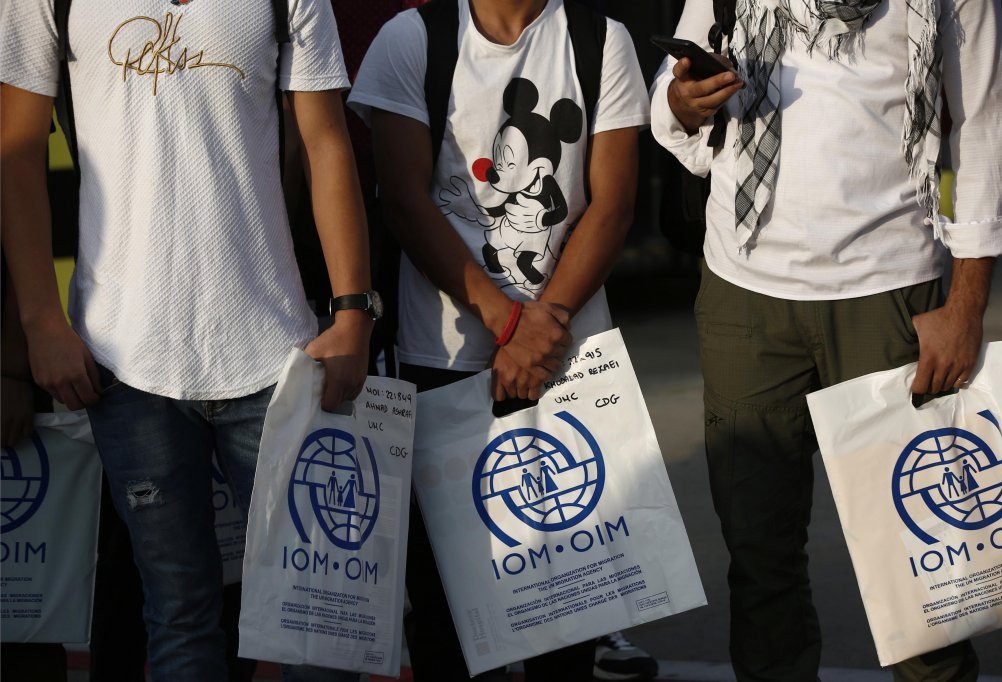Accommodation facilities in Greece remain close to full capacity. According to figures released on Tuesday (July 5) by the Greek Ministry of Migration and Asylum, around 2,010 unaccompanied refugee and migrant children call the country home.
This latest update comes off the back of announcements made by the European Union last month that the number of unaccompanied children who sought asylum in the European Union from 2021-2022 jumped by 72%.
The increase was a result of the number of refugees arriving from Afghanistan rising sharply, the bloc's statistics office Eurostat said.
The Greek migration ministry breaks down the numbers and states that 88% of the unaccompanied children present in Greece are boys, with just 12% girls. They are accommodated in various different centers around the country.
Various accommodation options
Overall, Greece has a total capacity of 2,304 places in various accommodation centers (Shelters/SIL apartments), and 180 places in emergency accommodation facilities. According to statistics from the ministry, 1,525 are housed in shelters, 212 in SIL apartments, 159 in emergency accommodation facilities, 95 in Reception and Identification Centers, and 19 in open accommodation facilities.
The numbers have remained more or less stable since September 2021, pointing to the fact that continuous influxes of people make it difficult for Greece to reduce the number, as the process of relocating children to other EU countries is slow.
Measures for unaccompanied children introduced
Greece has, however, introduced a series of measures to help unaccompanied children, one of them being the National Emergency Response Mechanism for Unaccompanied Minors (UAC) in precarious living conditions.
The service launched a telephone line in April 2021. Until the end of May 2022, the Mechanism received 5,312 calls, concerning 3,434 different cases of (UACs), 2,754 of them were about accommodation issues, 475 legal aid, and 205 were registered as "other requests."
Since March 2, 2022, the line has received referrals for 12 unaccompanied* and 430 separated minors from Ukraine. The good news is that so far, over 1,200 unaccompanied migrant children have been offered a new beginning in 13 different countries as a result of Greece's Voluntary Relocation Program, which has been operating for two years.
Voluntary relocation program
The program, which was introduced in April 2020 by the ruling New Democracy party led by Prime Minister Kyriakos Mitsotakis under the framework of the principle of European solidarity, has helped to give hundreds of unaccompanied children a new life in Europe.
The Special Secretariat for the Protection of Unaccompanied Minors is managing the project, with the support of the European Commission and the cooperation of thirteen EU Member States and other countries.
In order to ensure the protection of unaccompanied minors, government stakeholders implement specific tools for assessing the best interests of the child in compliance with specific quality standards, as enshrined in international child rights frameworks.
"European countries will continue to work together to ensure the equitable distribution and responsibility, to ensure their safe transport, and the reception and hospitality of unaccompanied children, to facilitate their smooth social integration in the host countries," said a statement released by Greece's Migration & Asylum Ministry last month.
A run by UNHCR (0030-2132128888 and 0030-6942773030, also on WhatsApp or Viber), available in all languages, runs at the core of the Mechanism. It is accessible 24/7 to anyone, including refugee children themselves, who wish to raise an alert about a homeless unaccompanied refugee child.
The is operated by the Special Secretariat for the Protection of Unaccompanied Minors, supported by UNHCR experts, while NGOs Arsis and the Network for Children’s Rights operate field mobile units and information desks and METAdrasi provides tele-interpretation services. IOM provides emergency accommodation and case management services. The Mechanism is co-funded by the Asylum, Migration and Integration Fund of the European Union.
